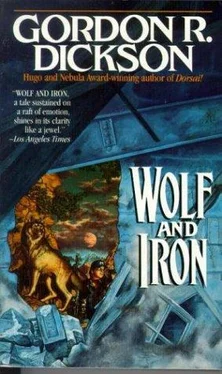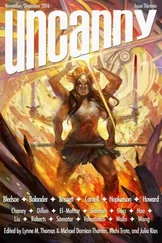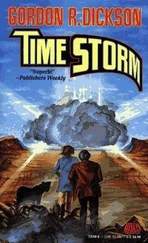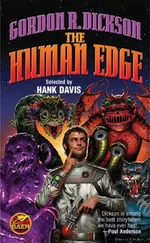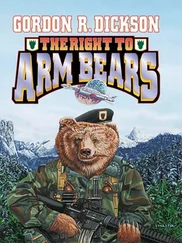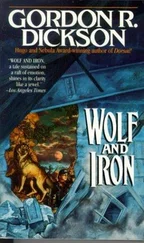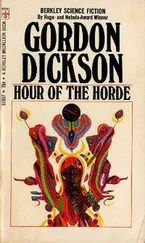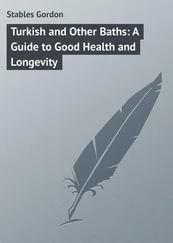“This’ll make all the difference, your telling me about this man with the wolves,” he said. “When I get back, I’ll ask Paul about him. Even if I can’t go there now, now that I know where his place is, I can find my way to it later and see if any of his books are there to look at.”
Merry reined her horse back until they were side by side.
“It really means a lot to you to know more about wolves—and Wolf?” she said, looking at him.
“It does,” Jeebee answered. “As I say, he’s a person. And there’re as many possibilities in him as there might be in any human being you might know—only one whose language you couldn’t quite speak or understand. Also wolves are more like us, socially and in individual character, than I ever realized. It could be that understanding them better could help us understand our own species. The matter of instinct, now—”
He broke off with a feeling he was talking too much.
“Dad’ll be glad to tell you about this character, I think,” Merry said, after waiting a moment for him to continue. “As I say, people don’t understand. Dad’s done a lot more studying and knows a lot more about a lot of things than people realize.”
“I’d about come to that conclusion on my own.” Jeebee was half-afraid of saying the wrong thing and frightening her off, but at the same time he desperately wanted to build some kind of bridge more solidly between them, before they had to go their separate ways.
“You really have?” Merry looked at him and her very bright blue eyes were even brighter with searching. “Hardly anybody does. I didn’t expect you would.”
“All my life I’ve been used to having people to talk to who are full of information about things I don’t know,” said Jeebee. “Actually, a lot of them know, but can’t talk. Not their fault, actually. They’d like to communicate but just don’t know how. Your father does. I found that out almost from the start.”
“You did?” Merry was looking at him, warily.
“Yes,” said Jeebee.
“How?” she demanded. When he was slow about answering, she went on. “I mean how did you find out? You say you saw this for yourself. But what showed it to you—before I mentioned it just now, that is?”
Jeebee shrugged.
“Experience,” he said. “A number of things. As I said, I’m used to talking to people who know a lot, and a lot of what they know I don’t. You get to know the signs. Your father shows them.”
“But what signs?”
“I can’t tell you,” said Jeebee. “In Paul’s case, it’s the way he answers questions. What he tells. What he decides not to tell. The way he thinks before he speaks sometimes… a number of things; but, believe me, I know what I’m talking about. Your father’s not only very capable and intelligent, but a very well-read man. Self-educated, I’d think. But he has knowledge.”
Merry continued to look at him almost suspiciously.
“No one else that I know of ever picked that up,” she said. “That is, not counting a few people who used to know him years ago. But those are all gone, or dead now. What’s different about you that you’d understand that?”
Jeebee felt a strange weariness.
“It’s part of—” He broke off. “My whole working life, actually—maybe beginning with my parents—I’ve lived with people who live by and with what they know. It marks them. It’s the same sort of marking that makes a teacher look like a teacher after forty years and a doctor look like a doctor and so on and so forth. The signs show, the way they talk and act shows.”
“He didn’t know about this seed farm,” said Merry.
“I only know about it by chance,” said Jeebee. “My work put me in contact with somebody who worked for one of the large seed companies, and he offered to show me what such a place looked like. I was in Denver on a sort of vacation at the time, and this place we’re going to had a few things he particularly wanted to show me, in the way of crops they were experimenting with. So he took me to it. That’s the only reason I know.”
“Why did you go?”
“The seed farm was a commercial enterprise, but the social dynamics models I was working on had to consider any factors that might affect distribution of resources, especially food resources.”
They rode in silence for a little bit. Merry was no longer looking at Jeebee but thoughtfully forward into the next stand of trees beyond the bit of open country they were now covering.
“Do you know where Dad’s heading in the long run?” she said at last, without turning her head.
“I think so,” Jeebee answered.
She looked at him quickly.
“Do you? Where’s he heading now, then?”
“If he can keep going another twenty years,” Jeebee said, “I figure he plans to set up what you might call stations, along the way of this route of his. Places where goods can be safely stockpiled, with already-established, reliable people there. With, say, one person or more to watch over them. Eventually the stations can grow into local outlets for the merchandise he’s been carrying himself about the country; and the deliveries of goods will be direct from where he gets them to the stations, instead of to him so he can carry them along the peddling route. The country is going to grow back and he wants to grow back with it.
“By that time,” he went on, “Paul’ll be in a position of sitting tight somewhere, probably back farther east, getting information from the stations on what they need and arranging to buy it so that it can be sent out to them. Again, he’ll have picked the strongest possible place for his headquarters, some community that’s growing in strength and beginning to form the nucleus of a new city.”
She drew in a deep breath.
“So that’s what you think,” she said.
“That’s what I’m almost certain of,” Jeebee answered quietly. He still did not want to scare her off or make her angry. “Your father’s operation is a microsystem of resource distribution. In its present form it’s pretty much an optimal adaptation to the current state of social organization. In the next twenty years the isolated farmsteads you’ve been visiting are going to become extended communities—”
“All the better for us,” she interrupted.
He held up his hand for a second to check her, and went on.
“Resource demands will change. Your father’s enough of a salesman to know that distribution systems will have to change accordingly. Besides, he has to want something better; not only for you but for himself. Particularly as he ages, and it’ll not be as easy for him to be on the road like this.”
She looked ahead again without responding, and they rode on in silence until the trees closed about them with no more words said.
But the ice had been broken. After a little while she asked him more about his childhood; and he told her, then asked her in turn about hers. It turned out that they both had been isolated children, with people but not of them, because of the movements of their parents or some other situation beyond their control.
They continued to talk more steadily as the day wore on. By the time they stopped, close to sunset, and pegged out the packhorses before starting a fire and settling down for the night, they had come to know a great deal about each other. They were talking like people who had known each other for years.
When the fire had caught strongly on a couple of short ends of wood, Jeebee got down the portable stove from one of the loads the packhorses had been carrying before they unloaded them for the night.
The stove was a smaller duplicate of the one on which they cooked at the wagon. It was metal and consisted of only two compartments; like a miniature chest of drawers with two drawers, one above the other. In the bottom one went the burning coals from the wood of a fire that had been going awhile. Then a lid was lifted to get at the top compartment; and on the sheet of metal that was its bottom, you could heat or cook food as the burning coals below continued to draw draft through the slots cut on either side of the stove, venting them through a higher grilled opening, and heating the metal surface above them.
Читать дальше
